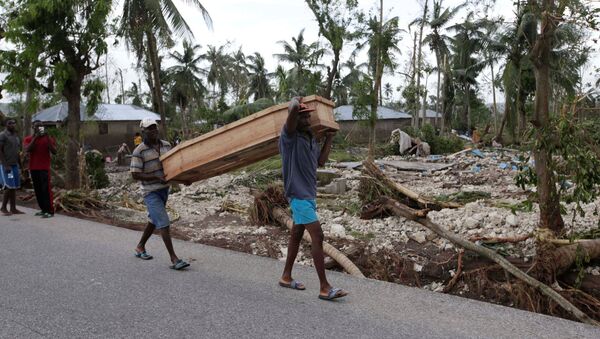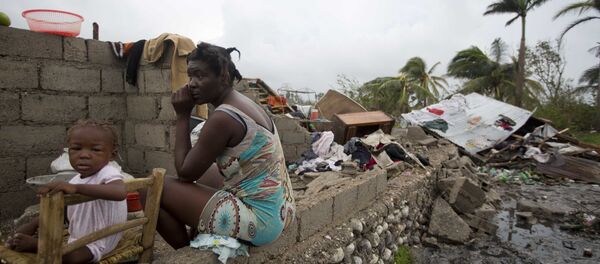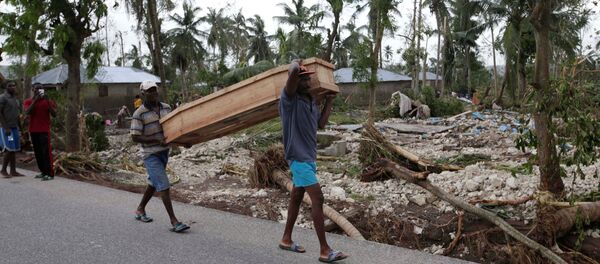Southwestern Haiti was devastated by Hurricane Matthew in early October, and while the media obsessed over the storm’s deadly passage through the Caribbean to the United States, hard-hit Haiti seems to have been forgotten in the aftermath.
"The low response is not fair to anybody, it is not fair to the people of Haiti and frankly it’s not fair to the people working in the response effort there at the moment," David Nabarro, a special advisor to UN Secretary-General Ban Ki-moon, told the Independent.
After Hurricane Matthew, the UN called for $120 million for aid to Haiti. So far, only $15 million has been raised, Nabarro told ABC news earlier this month.
The hurricane that Nabarro described as a "giant sanding machine" scouring the southwest peninsula of the island may have carried cholera in its wake. There have been between 1,000 and 2,000 suspected cases reported to his teams in just the last two weeks, the Independent reports, and some areas still have not been accessed. "We can't say exactly whether we have got a great big spike or a little spike," he said.
According to ReliefWeb, 3,423 suspected cholera cases were reported between October 4 and 24, including 1,065 in Sud Department and 752 in Grand'Anse Department, which make up the country's southwestern peninsula. The WHO and its regional office, the Pan American Health Organization (PAHO), said earlier this week that they would support a cholera vaccine campaign announced by Haiti's health ministry. The ministry has requested 1 million doses of the vaccine for the two southern departments. The campaign is due to launch Nov. 8, according to the WHO.
Haiti has already been in the grip of cholera since 2010, when sewage leaking from a UN base led to the first recorded outbreak in the country in 100 years. Now, after years of denying responsibility for the outbreak, which has killed nearly 10,000 and sickened hundreds of thousands more, the UN is working on a $400 million plan to fight the disease on the island nation. The plan may include direct payments to Haitians who contracted cholera themselves or who have lost a family member to the disease, NPR reports.
A possible breakdown of this plan – which comes six years after the UN brought cholera to the country – includes $100 million for payments to victims' families, $100 million for the worst-affected communities and $200 million for rapid response teams to combat new outbreaks and build water and sanitation systems in the country. Only a quarter of Haitians have toilets and only half have access to clean drinking water, Nabarro said, according to an October 24 Reuters report.
However, the proposal has not been approved yet, much less funded. The UN secretary-general is expected to propose this plan in the next few weeks, as he comes to the end of his term. Nabarro is not optimistic about raising the funds through donations, calling that "highly unlikely" in the Reuters report. It has "proved to be very hard indeed to get any traction" on donations from member states, he said.
"I have felt a little bit disheartened about it," Nabarro said. "I'm not in a situation where I feel confident about it."
Instead, the UN will have to discuss with member states whether the cost of the plan could be added to its budget.




